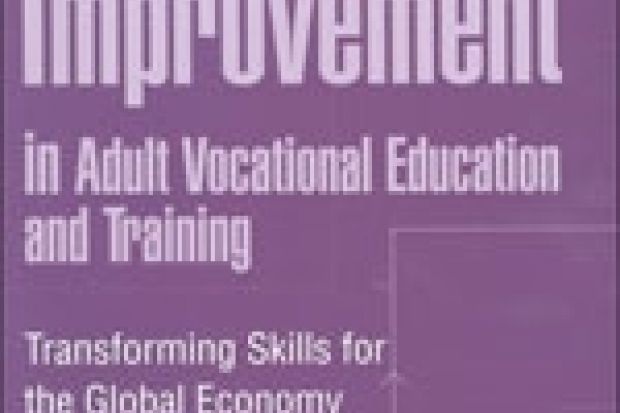Until it was merged, kicking and screaming, with the schools inspectorate in 2007, the Adult Learning Inspectorate (fashioned seven years earlier out of the ashes of the Further Education Funding Council and the Training Standards Council) enjoyed an international reputation in the world of adult learning, its scrutiny and enrichment.
Nicky Perry (formerly the ALI's director of inspection) and David Sherlock (formerly chief inspector of adult learning for England) are respected gurus in this world. The ALI was their baby. They invented its "Transformational Diamond" - "Aspiration, Assessment, Assistance, Accumulation" - a tool to assist adult-education providers to meet "the challenge of securing continuous improvement in learning". They constructed its Common Inspection Framework, with its emphasis on helping the bad providers to become satisfactory, the satisfactory to become good and the good to become excellent. And - though they modestly attribute the concept to an unnamed government minister who demanded "direct action to pull back failing providers from the brink" - they were largely responsible for the launch of the ALI's controversial Provider Development Unit, in which inspectors on secondment assisted institutions deemed unsatisfactory to achieve a better score on reinspection (although PDU alumni would probably not put it quite so starkly).
But was all this what the Treasury - which claims, after all, to be the guardian of our money - really wanted? You can read this book, as I have done, with the utmost sympathy, not to say respect. You will learn something - but not everything - about the ALI, how it went about its work, how it turned failing providers in both public and private sectors into success stories (and there was none more successful than the implementation of its devastating critique of welfare provision at the Army's suicide-prone Deepcut barracks), how it occasionally fell down on the job, but always learnt the lessons to be learnt from such embarrassments, how its reputation grew, and how its services were called upon by governments of other states. You may come away feeling, as I did, that the authors have blown their own trumpets, but that they may be forgiven for having done so. But you will not learn everything you need to know about the ALI.
To fill the gaps in the story that Perry and Sherlock tell, I suggest that you begin by reading the minutes of their encounter on 31 October 2005 with the Commons Select Committee on Education and Skills, a dialogue that is not referenced in this book. Asked by the committee's sympathetic chairman (Labour MP Barry Sheerman) to address the criticism that the ALI was just "a bunch of softies", contrasted with Ofsted, which "goes in, makes their (sic) judgment on the standards and then leaves it to the school to sort out", Mr Sherlock and Ms Perry could only fall back on their "fundamental belief" that the purpose of inspection was to help providers improve. But that was not the Ofsted view, that was not the Treasury view, and that was not the view of Gordon Brown.
On this narrative the book is silent. In truth, the marriage with Ofsted was less a merger than a takeover, and rightly so. However noble in spirit, it is really not the job of an inspectorial body to assist with quality improvement - the conflicts of interest are too many and too fundamental. Let inspectors inspect to their hearts' content. But let others pick up the pieces after they have departed.
Quality Improvement in Adult Vocational Education and Training: Transforming Skills for the Global Economy
By Nicky Perry and David Sherlock
Kogan Page
224pp
£40.00
ISBN 9780749451035
Published 3 April 2008
Register to continue
Why register?
- Registration is free and only takes a moment
- Once registered, you can read 3 articles a month
- Sign up for our newsletter
Subscribe
Or subscribe for unlimited access to:
- Unlimited access to news, views, insights & reviews
- Digital editions
- Digital access to THE’s university and college rankings analysis
Already registered or a current subscriber?




